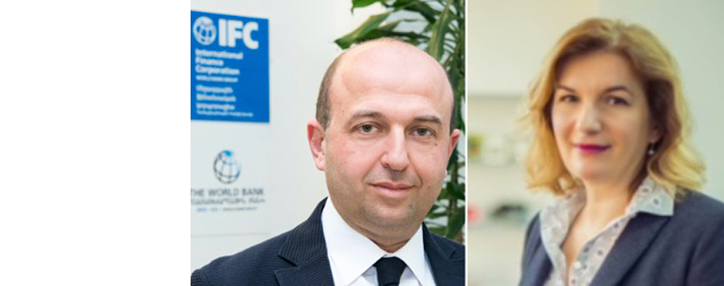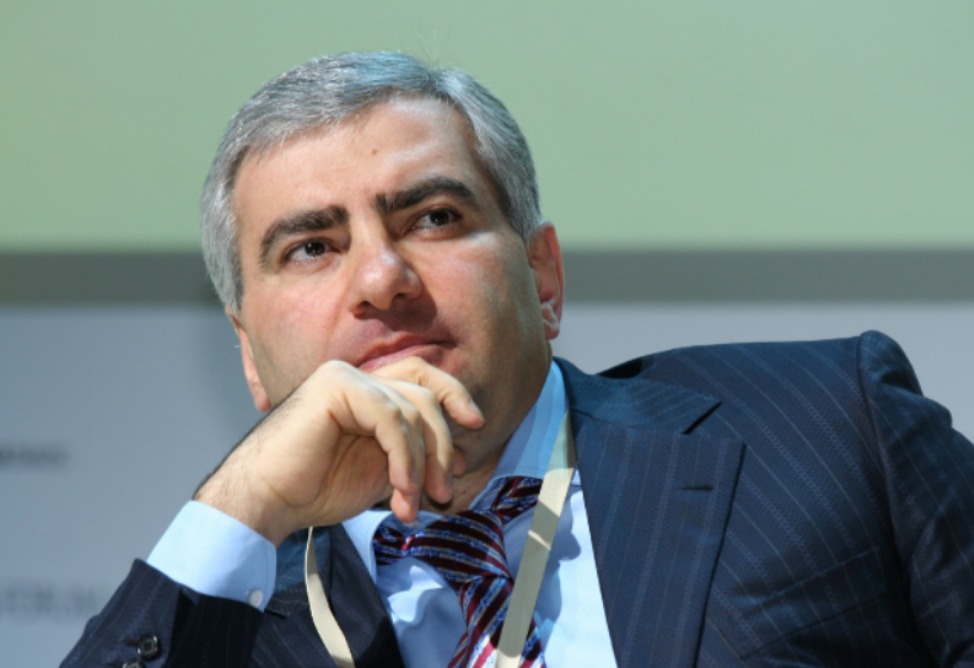FDI, the right prescription for Armenia’s pharma sector

Ivana Fernandes Duarte, IFC’s Regional Manager for the South Caucasus
Arsen Nazaryan, IFC’s Armenia Economic Growth Project Lead
YEREVAN, April 14, /ARKA/. COVID-19 changed the world, jolting us out of complacency and forcing us to reconsider our next steps. From impacting jobs and businesses to travel and tourism, it continues to upend our lives. As we try to absorb the tremendous consequences of perhaps one of the most significant health crises of our lifetime, one thing is amply clear—we need robust health systems for future resilience.
Globally, the pandemic has stretched health systems beyond their ability. Armenia is no exception. At a time like this, foreign direct investment (FDI) can be the country’s chance to revive its health care sector, especially pharma. Attracting FDI in the pharma sector will play a catalytic role in stimulating the Armenian economy, contributing to a strong recovery, and ensuring that people have better access to health care.
FDI can be a potentially transformative force—a source of capital, jobs, skills, innovations, and global market knowledge, among others. With the pressure on Armenia’s health budget due to the pandemic, it will further allow the country to modernize its production practices, encourage innovations, and improve lives.
Good news is that a study conducted by IFC’s Armenia Economic Growth project, delivered in partnership with the UK government’s Good Governance Fund, has already identified two subsectors—contract research organization (CRO) and contract manufacturing outsourcing (CMO)—with maximum FDI potential. While the first involves research services for pharmaceutical companies, the latter is about producing drugs or drug parts for global pharma companies.
In 2018, the value of global CRO services was estimated at $37 billion. In the period of 2018 to 2024, the market is estimated to grow at 8.2 percent compound annual growth rate. Apart from the growth potential of CRO services, the subsectors are ideal for several reasons. They safeguard potential FDI from large capital investment risks, are export oriented, globally competitive, and can offer attractive propositions to foreign investors.
The report, however, underlines that an improved business environment, along with key reforms and policy support, will be critical to attracting new FDI. For example, strengthening the regulatory framework and aligning it to global standards can increase Armenia’s access to international markets, opening up opportunities for foreign investors to put their money in the sector.
In addition, efficient insurance and medical coverage—reducing out of pocket expenses—is essential to make the sector attractive for FDI. As a prerequisite, improving health care access will allow the private sector to consider domestic market investment opportunities that are commercially viable and paid for by the health insurance system.
This is important, given that during 2014-2017, FDI inflows in the pharmaceutical sector in Armenia accounted for less than 2 percent of total capital FDI inflows ($14 million).
To influence investors’ choice of investment location, the report further recommends offering sector specific incentives and proactively reaching out and persuading them with tailored business cases. This is important because companies looking to expand internationally often compare several possible locations before making a decision. Typically, their choice is based on factors like access to markets, operating costs, risk factors, and quality of life, among others. So, Armenia will likely be up against a competitive list. In this context, ensuring investors have access to all relevant information will be crucial.
Skilled workforce—a critical site selection criterion—is another area of concern. A vibrant education system geared toward private sector needs will be key. Degree certifications in the pharma and life sciences studies, with mandatory private sector fellowships and internships offering exposure to industry experience, could be a good start.
Also, Armenian diaspora, the report highlights, can prove to be a valuable resource. Diaspora seed capital is likely behind some of the existing investment projects in the sector already. With entrepreneurs as well as sponsors of local origin spread across the world, senior pharmaceutical or health care professionals can help with industry insights on driving global competitiveness for FDI.
As Armenia focuses on the pharma sector, we at IFC will continue to advise the government and help strengthen the effectiveness of its investment promotion efforts—both before and after investments. Also, we will help conduct studies to understand the export market potential and support local pharmaceutical companies to venture into new export markets.
IFC already initiated a dialogue between Armenia’s public and private sectors, including pharmaceutical producers. This has led to the establishment of a task force that will now work on a strategy to attract FDI with IFC’s support.
Going forward, the sector scan of FDI can be used to help Armenia address challenges and implement reforms to inspire confidence among foreign investors. Most importantly, it will allow the country to create a healthy roadmap, preparing it to thwart any future shocks threatening its economy and people.
-----
The study was conducted by IFC’s Armenia Economic Growth project, implemented in partnership with the UK government’s Good Governance Fund. For the full study, ‘Foreign Direct Investment in Pharmaceuticals and Healthcare in Armenia,’ click here. -0-



